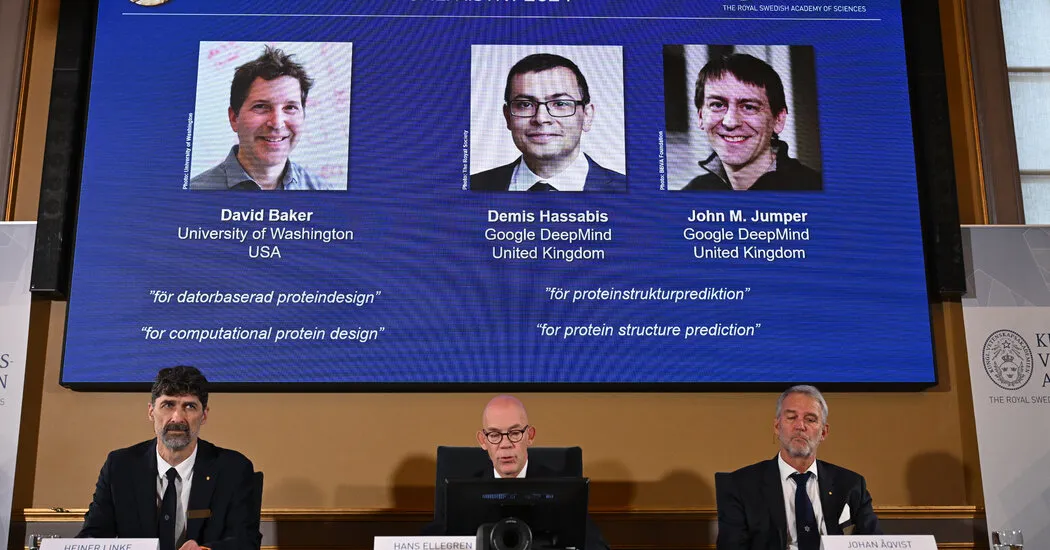Your-Feed-Science: Nobel Prize in Chemistry Recognizes Groundbreaking Protein Research

Your-Feed-Science: A Groundbreaking Achievement in Chemistry
The recent Nobel Prize in Chemistry has been awarded to three remarkable scientists: Demis Hassabis, John Jumper, and David Baker. This award recognizes their groundbreaking work in the field of protein science, particularly in predicting and creating novel proteins through advanced A.I. technology.
The Role of A.I. in Protein Research
Utilizing A.I., Hassabis and Jumper from Google DeepMind have pioneered methods for accurately predicting protein shapes, which are crucial for various biological processes. Their work enables a deeper understanding of diseases and can lead to innovative treatments.
David Baker's Contributions
Meanwhile, David Baker has taken a significant leap by designing new proteins that are unlike any encountered before, which opens new avenues in biochemical research. His findings show remarkable potential for creating proteins with specific functions, applicable in therapeutics and vaccine development.
Importance of This Achievement
- This award signifies a merging of technology and biology.
- Improving our ability to manipulate proteins can have wide-reaching applications in medicine.
- As the field of protein research progresses, we can expect to see breakthroughs in disease prevention and treatment.
For anyone interested in the latest health technologies and advancements in medical research, this achievement marks a monumental step forward.
Disclaimer: The information provided on this site is for informational purposes only and is not intended as medical advice. We are not responsible for any actions taken based on the content of this site. Always consult a qualified healthcare provider for medical advice, diagnosis, and treatment. We source our news from reputable sources and provide links to the original articles. We do not endorse or assume responsibility for the accuracy of the information contained in external sources.
This article was prepared using information from open sources in accordance with the principles of Ethical Policy. The editorial team is not responsible for absolute accuracy, as it relies on data from the sources referenced.